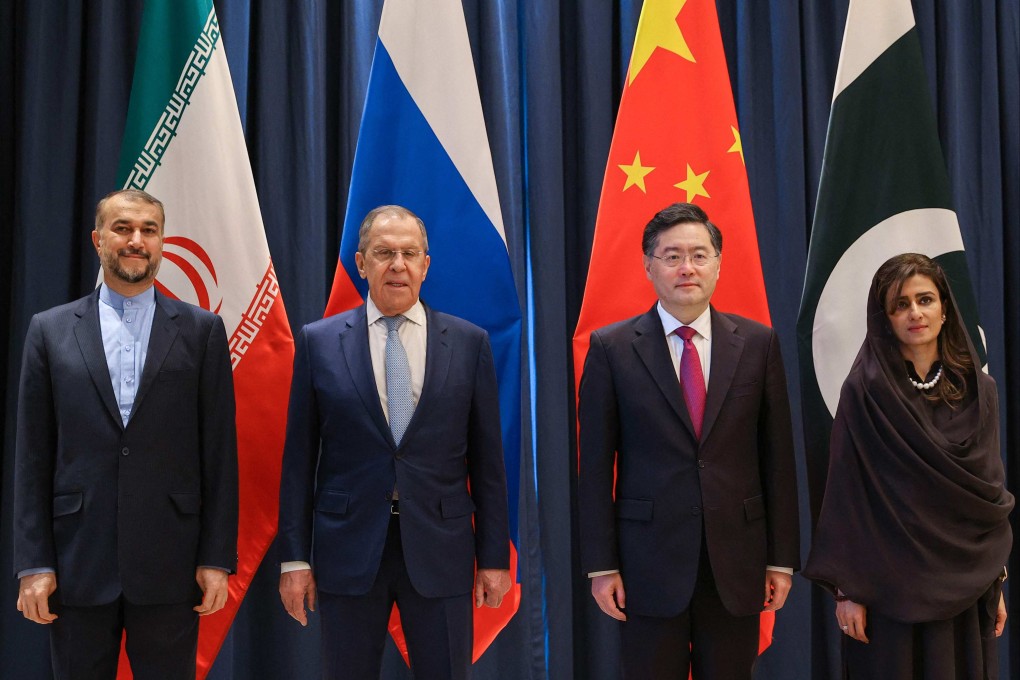Advertisement
In Afghanistan, China to stay focused on trade ties, Taliban counterterrorism efforts: analyst
- ‘China’s Position on the Afghan Issue’ released as Foreign Minister Qin Gang visits Central Asia, with 3 out of 11 points referring to anti-terror work
- Counterterrorism will be a key factor for China to recognise the Taliban’s international status and further economic ties, observer says
Reading Time:3 minutes
Why you can trust SCMP
7

China will focus more on economic ties and anti-terror work with Afghanistan, an observer said, citing a position paper released as the Chinese foreign minister began his first trip to Central Asia.
The paper repeated Beijing’s shared regional approach towards the Taliban regime but offered little on new policies relating to Afghanistan, according to Zhu Yongbiao, director of the Centre for Afghanistan Studies at Lanzhou University in northwestern China.
Titled “China’s Position on the Afghan Issue”, the statement was released on Wednesday – just as Foreign Minister Qin Gang began his first visit to Uzbekistan in his new role.
Advertisement
It listed 11 points about China’s attitude to the Taliban regime in Afghanistan, in one of its most comprehensive official statements on the turbulent nation since the militant group took power again in Kabul.
While calling for economic cooperation with the regime and expressing support for its counterterrorism activities, the paper appealed to the Taliban government to “adopt moderate and prudent domestic and foreign policies”.
Advertisement
Advertisement
Select Voice
Choose your listening speed
Get through articles 2x faster
1.25x
250 WPM
Slow
Average
Fast
1.25x